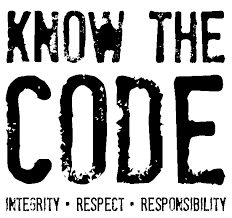conduct
英 [kənˈdʌkt]
美 [kənˈdʌkt]
- vi. 导电;带领
- vt. 管理;引导;表现
- n. 进行;行为;实施
使用频率:

记忆方法
将“conduct”拆分为“con-duct”,联想为“con”如同收敛,而“duct”像是水龙头被打开(duct = 水管)。想象控制水流的行为就像进行某种活动或引导过程,即“conduct”表示引导、管理或行为。
以上内容由AI生成, 仅供参考和借鉴
中文词源
conduct 引导,行为
来自conduce, 引导。
英语词源
- conduct (v.)
- early 15c., "to guide," from Latin conductus, past participle of conducere "to lead or bring together" (see conduce). Sense of "convey" is from early 15c.; that of "to direct, manage" is from 1630s; "to behave in a certain way" from c. 1710; "to convey" from 1740. Related: Conducted; conducting. Earlier verb in the same sense was condyten (c. 1400), related to conduit. The noun is from mid-15c., "guide" (in sauf conducte); sense of "behavior" is first recorded 1670s.
权威例句
- 1. The evaluation of conduct involves some amount of generalization.
- 对操行的评价会含有一些泛泛之论。
- 2. Rules governing student conduct relaxed somewhat in recent years.
- 近年来约束学生行为的规定有所放宽。
- 3. In most of the residence halls we visited, rules prohibit disorderly conduct.
- 在我们走访的学生宿舍里,大多明令禁止胡作非为。
- 4. The newspaper breached the code of conduct on privacy.
- 该报违反了保护隐私的行为准则。
- 5. He was rational and consistent in the conduct of his affairs.
- 他处理私事时头脑清楚,始终如一。